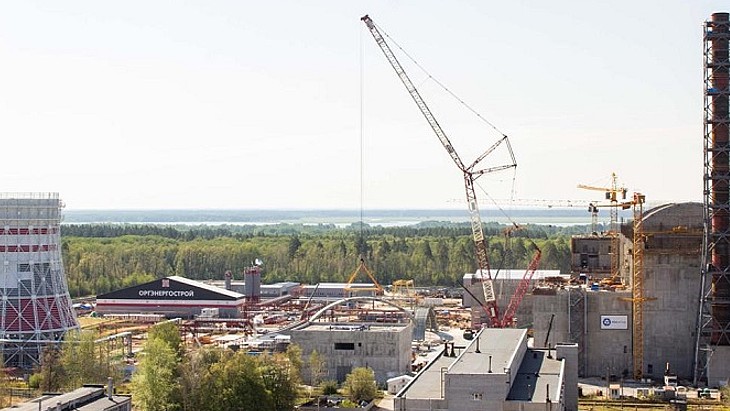The work took place over five months using a crane with a lifting capacity of 750 tonnes to install 22 arches, each with a span of 38 metres and weighing 74 tonnes, Rosatom said.
Alexander Tuzov, director of the Research Institute of Atomic Reactors (RIAR), said: "The construction of the MBIR reactor complex is another important step towards providing the domestic nuclear industry with a modern and technologically advanced research infrastructure for several decades to come. At MBIR they will conduct experiments not only in the interests of nuclear energy, but also for all other industries that use nuclear technologies - from medicine to space."
Gennady Sakharov, Director for Capital Investments, State Construction Supervision and State Expertise of the Rosatom State Corporation, said work continued on schedule and the completion of the roof "makes it possible to begin installing the main process equipment and performing special installation and finishing work".
Being built at the site of RIAR at Dimitrovgrad, in Russia's Ulyanovsk region, MBIR had the last major installation that required an open top - its reactor vessel - set in place in January. It will be the most powerful research reactor in the world, at 150 MWt. It will be a multi-loop research reactor capable of testing lead, lead-bismuth and gas coolants, and running on MOX (mixed uranium and plutonium oxide) fuel. RIAR intends to set up on-site closed fuel cycle facilities for the MBIR, using pyrochemical reprocessing it has developed at pilot scale.
The MBIR is scheduled to begin operation in 2027 and replace the BOR-60 experimental fast reactor that started operations at RIAR's site in 1969. It will have a design life of 50 years and "will expand the study of dual-component nuclear energy technologies and closing the fuel cycle, and will also help accelerate and justify the creation of safe Generation IV nuclear power plants". Rosatom calls it "the most important project for the long-term development of the experimental base of the domestic nuclear industry, which will ensure Russia’s leadership in the development of innovative reactor technologies for the next half century".





_55401.png)
_23009.jpg)

_33392.jpg)






